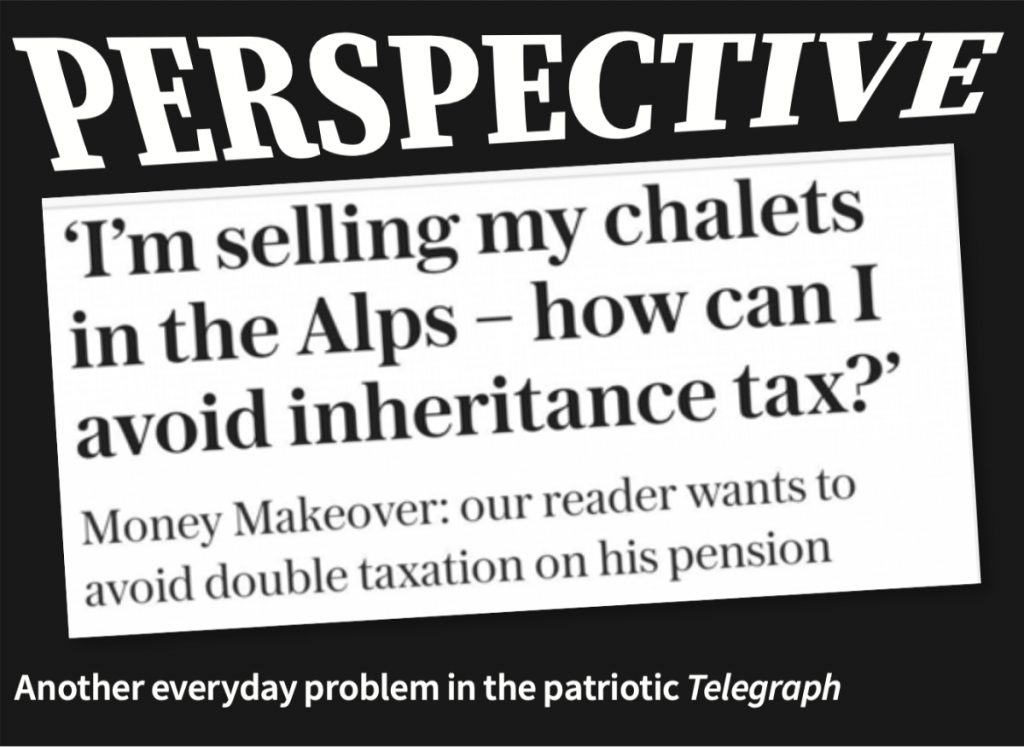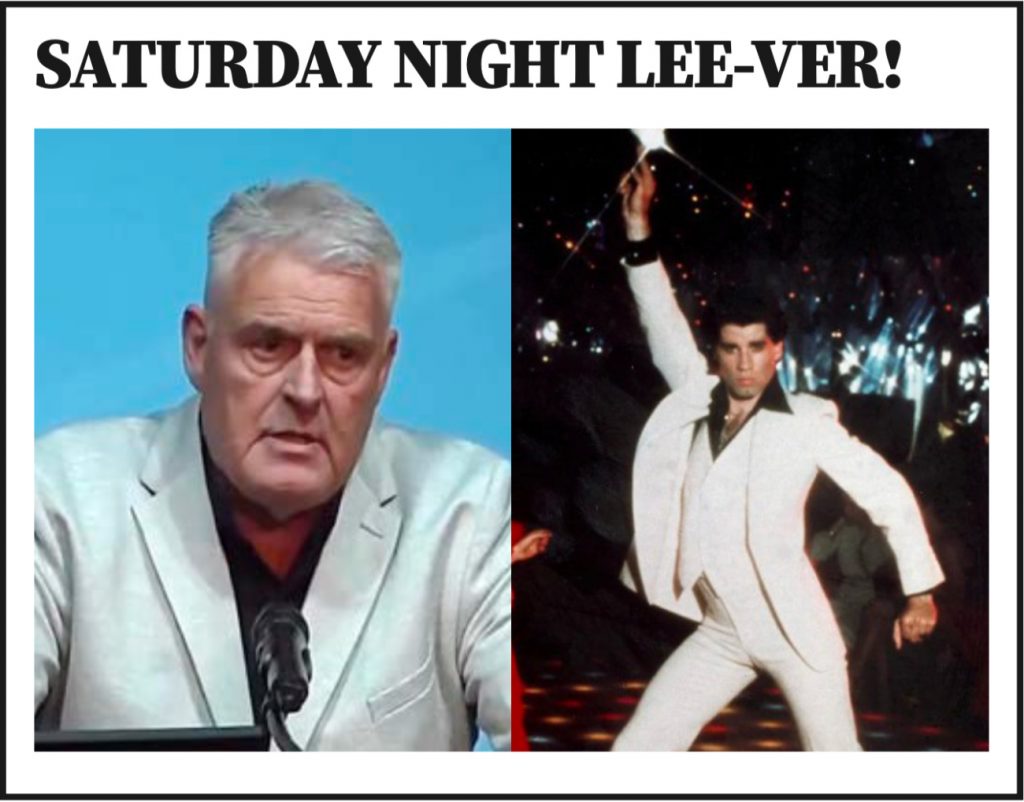Re: “Five radical steps that will make Starmer beat Farage” (TNE #418). There is a lot of good and practical advice in Paul Mason’s article, but “rapidly reducing net legal immigration to levels acceptable to the electorate” is highly problematic.
Voters think they are against immigration, but faced with the reality of the negative impact on economic output, food prices, public services etc, reducing immigration is likely to make any government very unpopular – which is why the Conservatives talked about it but did the opposite.
In the USA, Donald Trump voters are already beginning to worry about the potential impact on their own wellbeing as a result of his immigration policies, and he is not even in government yet.
Adrian Lyons
Immigration is going to rise, not fall. That is the world we now live in, as the planet heats and global conflict grows. The narrative needs to shift so that immigration is seen as an advantage.
If that cannot be done (and Paul Mason has to be part of that process), then Nigel Farage is highly likely to be the next prime minister.
Roger Barnes
The UK needs to assess how it is measuring immigration. It is nonsense to “lump” all forms of migration together.
Students (a large number) should be part of a separate category, as should those on part-time short contracts working for less than 12 months. Each of these forms of non-permanent stay in the UK distorts figures. There will no doubt be other such categories to consider.
The UK needs an accurate rolling figure if it is to understand what is happening and why. All governments have failed in this respect.
Ian Dowdle
Keir Starmer should shed the cloak of fear. The media will always lie about and smear the government; he should ignore them and get on with it.
And, since Nigel Farage shatters when challenged, he should be subjected to full-on attack. Perhaps someone might ask him to offer detail on the country he and his followers apparently want back?
Michael Rosenthal
I would add to Paul Mason’s article the not so radical but perfectly sensible prevention of MPs taking additional jobs. The taxpayer (that’s us) pays MPs over £90K a year. They are public servants just like nurses, teachers, police etc and, as such, we are entitled to expect them to work full-time for their constituencies.
Taking lucrative directorships and consultancies mean their loyalties are to these paymasters and their own careers. They should have, like all other public servants, a job description against which they have regular appraisals.
Demanding MPs concentrate on the job we pay them for will discourage all those MPs who are only in it in order to get an introduction to lucrative outside work. We pay them, we have a right to be sure they do the job. Moreover, they insult the vast majority of their colleagues who do work tirelessly and conscientiously for their constituents.
It is seen as a bit of a joke that Nigel Farage is rarely in Clacton. He, and others like him, wouldn’t be an MP at all if they couldn’t spend all their time doing (and getting paid for) other things.
Carol Green
Oxford
While Paul Mason’s list has merits, it fails to include rejoining the EU.
European nations are too small to compete with economies like those of the USA and China, not to mention the emerging economies of India and Brazil. Single-nation solutions will not work. The UK needs Europe just as much as Europe needs the UK, and the agenda set out in the article will only succeed if applied across the EU. A centre left, progressive government cannot expect to succeed by maintaining Brexit, a key policy of the right.
Mark Grahame
Curb foreign ownership of the media and guarantee the independence of the BBC.
Government must be exercised “for the common good”, not just the narrow interest of the biggest party in parliament. This could be enforced first by a requirement that any law, and especially one resulting in a constitutional change, should come with a detailed explanation of how it would benefit the country and its citizens, not simply as the government saying “We want to do X”. Lying to parliament should also be a criminal offence.
Adam Bukolt

Challenge Brexiteers
I enjoyed Patience Wheatcroft’s wish list for 2025, which included “Anyone who mentions missed ‘Brexit opportunities’ or ‘benefits of Brexit’ yet to be realised should have to spell them out, in detail.” I would include a stipulation that anyone who goes on to say that Brexit has just not been implemented properly must be made to explain why it hasn’t and what they would do differently to make it a roaring success.
David Pollard
I would add a further wish. Stop giving Nigel Farage and co free publicity by incessantly wringing hands over their supposed rise in popularity. The idea that Reform will go from just five MPs to something much more substantial in four years’ time is based on a series of bogus assumptions.
Start insisting they justify whatever policies they appear to have, as they are spooked whenever challenged on them. If they want to be taken seriously, part of that means being put on the spot and asked clearly “what would YOU do?” And make sure in doing so their answers get the same scrutiny given to other parties.
Nigel Rolfe
Musk as president?
One of my favourite books is The Plot Against America by Philip Roth. It is an alternative history of what might have happened if a non-politician, Charles Lindbergh, had won the 1940 US election against all expectations and on an extremist platform.
The rise of Donald Trump reminded me of such a story, and then when Elon Musk turned up even more alarm bells went off. Finally, reading the splendid article by Matthew D’Ancona (“Meet America’s new boss”, TNE #418) I can envisage a literary opportunity for someone along similar lines.
Think about it: Trump is no spring chicken and may not last four years. If JD Vance succumbs then the Speaker of the House takes over – and if MAGA hardliners have already planted Musk in the Speaker’s chair, as some have suggested, you have a money-spinning tale.
Of course, we have zero worries ourselves as fiction rarely eclipses real life. Or does it?
Robert Boston
Kingshill, Kent
Elon Musk’s emergence is like a cheap version of a Bond movie – the villainous oligarch, who feels bold enough to step out of the shadows, in control. But this is real life without an all-conquering hero. The worst damage will occur when the orange fat boy tires of Musk.
James Whiter
Tanit Koch (Germansplaining, TNE #418) discusses Elon Musk’s support of the AfD. How long before he starts weighing in on France?
Chris Platts
A job for Jonathan
Re: Rats In A Sack on Jonathan Gullis’s difficulty finding new employment (TNE #418). I thought the Tory position was that there are jobs for anyone who wants one? Maybe he’s just lazy and wants to sponge off the state?
The advice to young jobseekers is to scrub their social media presence of embarrassing content before applying for jobs. Gullis’s behaviour over the past five years has been, shall we say, a little more public and therefore not easy to scrub.
Stuart Shingler
It’s hard on his family, but I don’t have much sympathy for Jonathan Gullis after his attacks on vulnerable people. Maybe his behaviour in parliament is what is putting off possible employers. I should imagine he might not be welcome in many school staff rooms.
Rosalind Russell
Short and sweet
As Peter Trudgill says in “The pet name of the game” (TNE #418), people’s names are often abbreviated to more informal or affectionate pet names. Not everyone knows that “Marine” Le Pen’s proper name is Marion. I call her Marion Le Pen, as I have no particular affection for the lady.
John King
Stratford-upon-Avon, West Midlands
Re: Pet names. Margaret can also be turned into Daisy. Margarethe, the former Queen of Denmark, was said to be called Daisy Denmark by the late Queen Elizabeth II (Lilibet).
Rosemary Morlin
Peter Trudgill writes “David can give us Dave but surely not much else”. Having a vested interest in this, there was also the use of Davy as in Davy Jones of the Monkees, and one that I was given – “‘Vid”. Admittedly not commonly used, but I’m hoping for an upsurge of use from the TNE readership.
David Pollard
Heckmondwike, West Yorkshire
In response to Peter Trudgill’s column “Is it too much to aks?” (TNE #417), I offer this verse:
My girlfriend had set me a task
And I came downstairs wearing a mask
What she heard on the landing
Was a misunderstanding
All I said was she had a big ask
Graham Guest
Bromley, Greater London
Classical conditions
Your poster of “The Departed 2024” (TNE #417) features the late Andrew Davis, but not the composer Alexander Goehr, who died in August. Nor does the same edition’s article on the music of 2024, “Sounds of a planet in freefall”, contain even the briefest reference to classical music.
In a survey some months ago you asked readers if they wanted coverage of “classical music and opera” and “contemporary music”, which suggests that you believe no classical music is being written now.
Even if it were not, that would not be a reason for ignoring it; a recent issue of TNE contained articles on Renaissance painting and Shakespeare.
Carolyn Beckingham
Lewes, East Sussex
It’s just not crickets
I read Silvia Marchetti’s article on cricket panettone (Carousel, TNE #417) with interest. I would like to make a suggestion for next year’s panettone, again with insects involved.
I’ve always understood that coriander is called cilantro (from Greek koris) as it smells like bedbugs. Surely a bedbug panettone would find a use for this infestation and satisfy the lust for innovation.
Any takers?
Jane Swan
Delabole, Cornwall
I wonder what the Test Match Special team would make of being presented with a cake made from cricket flour…
David Baume

BELOW THE LINE
Comments, conversation and correspondence from our online subscribers
The spectrum of outsiders in Steve Richards’ “The outsiders rise again” (TNE #418) is rather a wide one. I’m not sure that they all have much in common with each other. Placing the SNP and Nigel Farage in the same group doesn’t ring true for me. A pro-EU centre-left party who have been in government for over a decade, and a far right member of the establishment who has only just managed to enter parliament. One deals with the nitty gritty of everyday government, while the other deals only in superficial sound bites.
Surely, they have little in common…
Roddy Grant
I agree with Marie Le Conte (Dilettante, TNE #418). It is tough to see a positive way forward for humankind but we can still celebrate positive personal plans for the coming year. My advice for fellow New European readers: Stay off planes, grow vegetables, read good books, set Scotland free, value intelligence, change minds if possible.
Keith Brisley
I enjoyed James Ball’s piece on the TNE website about It’s a Wonderful Life (which he calls “the tale of a NIMBY preparing to impose a radical moral agenda on his selfish neighbours”). Consider also that wilfully misunderstood so-called Christmas classic, Die Hard. A straight white male representative of the regulatory police state doggedly defends the interests of globalised capital against a small band of freedom-loving insurgents with beautiful hair seeking to carve out space for Liberty in the consumer-authoritarian hell of the late 20th century. This is so much fun!
Chad Staddon
James Ball’s piece reminds us that there are always two sides to any story. Still, George did save his brother, who went on to save hundreds of lives on a troop ship. Nothing in this world is black and white (except of course the film).
Christopher Harrison
I enjoyed David Quantick’s “When British pop went European” (TNE #416). There is so much great European music from that time: Faust, Les Balayeurs du désert, Gong, Can, Fabrizio De André, Noir Désir, Pino Daniele…
Richard Riddle
JOIN THE CONVERSATION
Subscribe and download our free new app to comment and chat with our writers



